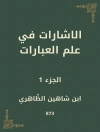In this groundbreaking first volume of SAGE′s Evaluation in Practice Series, best-selling author Donna M. Mertens explores the meaning of mixed methods evaluation, its evolution over the last few decades, and the dominant philosophical frameworks that are influencing thought and practice in the field today. Four chapters explore evaluation of the effectiveness of interventions, development of instruments, systematic reviews, and policy evaluations, while an additional chapter covers evaluation approaches often required in specific contexts including gender responsive evaluations, needs assessment, and evaluations in conflict zones. Practical in nature, the book guides readers’ thinking about the design of mixed methods evaluations through the use of illustrative examples and explanations for further applications.
SAGE’s Evaluation in Practice Series offers concise, practical books for students and professionals working as evaluators.
สารบัญ
Volume Editors’ Introduction
Preface
Acknowledgments
About the Author
Chapter 1. Mixed Methods in Evaluation: History and Progress
History of Evaluation and Mixed Methods
Scope of This Book
Differentiating Mixed Methods Research and Mixed Methods Evaluation
Increased Interest in and Demand for Mixed Methods Evaluations
Complexity in Evaluation Contexts and the Role of Mixed Methods
Conceptual Framework: Paradigms and Branches of Evaluation
Philosophical Frames for Mixed Methods Evaluation
Connecting Paradigms With the Field of Evaluation
Overview of Mixed Methods Approaches and Purposes
Criteria to Judge Quality in Mixed Methods Evaluation Design
Summary and Moving Forward: Overview of This Book
Chapter 2. Mixed Methods Designs to Evaluate Interventions
Evaluating Interventions
Methods Branch: Mixed Methods and Experimental Designs to Test Intervention Effectiveness
Values Branch: Qualitatively Dominant RCT Mixed Methods Design
Use Branch: Randomized Controlled Trial With Qualitative Methods
Social Justice Branch: Mixed Methods With RCT and Qualitative Designs
Dialectical Pluralism: Mixed Methods for Intervention Evaluations
Summary and Moving Forward
Chapter 3. Mixed Methods Evaluation Designs for Instrument Development
Instrument Development
Methods Branch: Mixed Methods and Instrument Development
Values Branch: Instrument Development With Qualitative Approach Dominant
Use Branch: Multiphase Instrument Development
Social Justice Branch: Instrument Development
Dialectical Pluralism: Instrument Development
Summary and Moving Forward
Chapter 4. Mixed Methods Evaluation Designs for Policy Evaluation
Policy Evaluation and Mixed Methods
Methods Branch: Mixed Methods Policy Evaluation
Methods Branch: Mixed Methods Survey/Interview Embedded Policy Analysis
Values Branch: Mixed Methods Policy Evaluation
Use Branch: Mixed Methods Policy Evaluation
Social Justice Branch: Mixed Methods Policy Evaluation
Dialectical Pluralism: Mixed Methods Policy Evaluation
Summary and Moving Forward
Chapter 5. Mixed Methods Evaluation Designs for Systematic Reviews
Mixed Methods and Systematic Literature Review
Methods Branch: Mixed Methods Systematic Reviews
Values Branch: Qualitatively Dominant Systematic Reviews
Use Branch: Mixed Methods Systematic Reviews
Social Justice Branch: Mixed Methods Systematic Reviews
Dialectical Pluralism: Mixed Methods Systematic Reviews
Summary and Moving Forward
Chapter 6. Variations in Mixed Methods Evaluation Designs
Mixed Methods Designs and Gender-Responsive Evaluation
Mixed Methods Designs and Indigenous Evaluation
Universal Design: Mixed Methods Designs With Persons With Disabilities and Deaf Persons
Mixed Methods Designs and Developmental Evaluation
Mixed Methods Designs and Needs Assessment
Mixed Methods Designs and Visual Spatial Data
Mixed Methods Designs and Arts-Based Evaluations
Mixed Methods Designs in Conflict Zones and Violently Divided Societies
Summary and Moving Forward
Chapter 7. Trends, Challenges, and Advances in Mixed Methods Evaluation
Trends and Challenges for the Future of Mixed Methods
Philosophy and Methodology
Innovative Designs
Technological Advances and Big Data
Preparation of Mixed Methods Evaluators
Responsiveness to Complex Social Problems
Integration and Dissemination in Mixed Methods Evaluation
Conclusions and Moving Forward
Appendix. Key Resources for Additional Examples and Insights Into Mixed Methods Design in Evaluation
References
Index
เกี่ยวกับผู้แต่ง
Donna M. Mertens is Professor Emeritus, Department of Education, at Gallaudet University. She taught research methods and program evaluation to deaf and hearing students at the MA and Ph D levels for over 30 years. She now teaches courses and professional development workshops around the world.She conducts research and evaluation studies on such topics as improvement of special education services in international settings, planning for the inclusion of students with disabilities in neighborhood schools, enhancing the educational experiences of students with disabilities, preventing sexual abuse in residential schools for deaf students, improving access to the court systems for deaf and hard-of-hearing people, and improving the preparation of teachers of the deaf through appropriate use of instructional technology. Her research focuses on improving methods of inquiry by integrating the perspectives of those who have experienced oppression in our society. She draws on the writings of feminists, racial and ethnic minorities, and people with disabilities, as well as Indigenous peoples who have addressed the issues of power and oppression and their implications for research methodology.Dr. Mertens has made numerous presentations at the meetings of the American Educational Research Association, American Evaluation Association, Australasian Evaluation Society, Association for College Educators of the Deaf and Hard of Hearing, International Sociological Association, Mixed Methods International Research Association, American Psychological Association, African Evaluation Association, Canadian Evaluation Society, Visitors Studies Association, and other organizations that explore these themes. She served as president and board member of the American Evaluation Association from 1997 to 2002 and as a member of the Board of Trustees for the International Organization for Cooperation in Evaluation, 2002–2003. She served as editor for the Journal of Mixed Methods Research 2009-2014.Her publications include four edited volumes, Indigenous Pathways to Social Research (coedited with Fiona Cram and Bagele Chilisa, 2013), Handbook of Social Research Ethics (coedited with Pauline Ginsberg, 2009), Creative Ideas for Teaching Evaluation (1989), and Research and Inequality (coedited with Carole Truman and Beth Humphries, 2000), and several authored books, including Mixed Methods Design in Evaluation (2018), Program Evaluation: A Comprehensive Guide (2nd ed.) (with Amy Wilson, 2018), Transformative Research and Evaluation (2009), Research and Evaluation Methods in Special Education (coauthored with John Mc Laughlin, 2004), and Parents and Their Deaf Children (coauthored with Kay Meadow-Orlans and Marilyn Sass Lehrer, 2003). She also publishes many chapters and articles in edited volumes, encyclopedias, handbooks, and journals, such as Journal of Mixed Methods Research, Qualitative Social Work, Eye on Psi Chi, Educational Researcher, International Journal of Mixed Methods Research, New Directions for Program Evaluation, American Journal of Evaluation, American Annals of the Deaf, Studies in Educational Evaluation, and Educational Evaluation and Policy Analysis.












